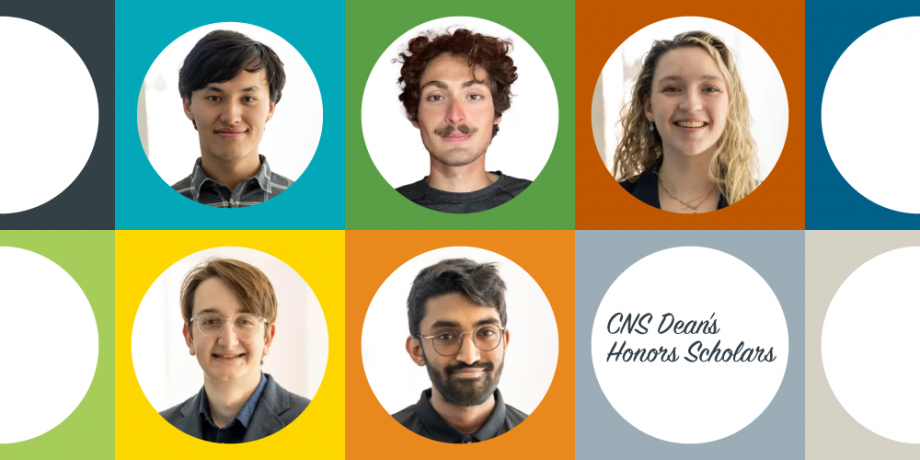
The title of Dean’s Honored Graduate is the highest honor a College of Natural Sciences student can receive. Each year, graduating seniors are nominated by faculty members for their achievements in research, academics, community building and service to the college. This year’s graduating seniors will receive recognition at the May 11 college ceremonies.
Meet the graduating UT Computer Science seniors being recognized for excellence in research, academics, and improving the community.
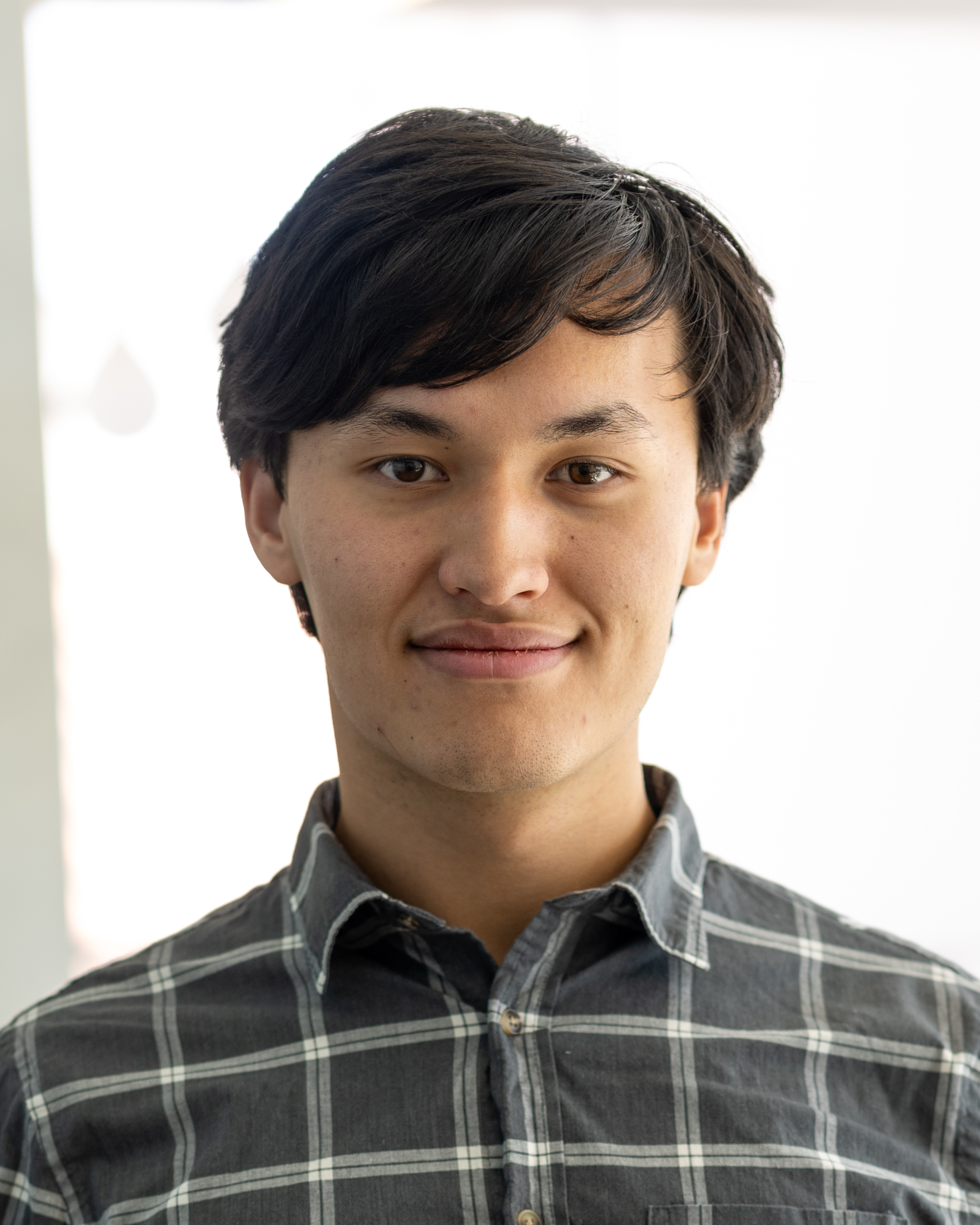 Alex Burton
Alex Burton
Dean’s Honored Graduate in Mathematics and Computer Science
Alex Burton is a Turing Scholar from Austin, Texas, graduating with degrees in mathematics and computer science. As a passionate student of both math and computer science, his research interests are in applied cryptography, which lies at the intersection of these two fields. His work in applied cryptography focuses on bridging the gap between theoretical frameworks and practical efficiency. His honors thesis with David Wu applies both algebraic and systems-level optimizations to improve the concrete efficiency of private information retrieval schemes. He is currently working towards extending the work in his thesis to be published in ACM CCS, a top cybersecurity conference. He has previously been an undergraduate course assistant for discrete math, where he takes pride in helping his fellow students. Outside of class, whether he is lifting in Gregory Gym, jogging around Austin or hiking in the remote wilderness, Burton embraces physical challenges as much as intellectual ones. After graduation, he will continue his research in applied cryptography at UT Austin in the five-year master’s program. In the future, he hopes that he can keep using his talents to keep the world of digital information free and secure.
 Stephane Hatgis-Kessell
Stephane Hatgis-Kessell
Dean’s Honored Graduate in Computer Science
Stephane Hatgis-Kessell is graduating with a B.S. in computer science, with Turing Scholars Honors. For the last 3 years, he has worked with Brad Knox, Peter Stone and Scott Niekum on understanding how to learn human-aligned behaviors for decision-making systems from human data. Hatgis-Kessell has co-authored a conference paper, entitled “Learning optimal advantage from preferences and mistaking it for reward,” and a journal paper entitled “Models of human preference for learning reward functions.” For his research, Hatgis-Kessell received the UT Co-Op George H. Mitchell Award and was selected for Honorable Mention of the 2024 Computing Research Association’s Outstanding Undergraduate Researcher Award. He is excited to continue developing new methods for ensuring that intelligent agents do what we actually want them to do as a Ph.D. student at Stanford University. Outside of his academic pursuits, Hatgis-Kessell has enjoyed backpacking through Asia for the last four months.
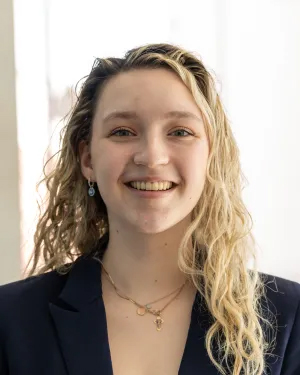 Jenn Mickel
Jenn Mickel
Dean’s Honored Graduate in Computer Science and Mathematics
Jennifer Mickel is a Turing Scholar and Polymathic Scholar, graduating with degrees in computer science and mathematics, as well as minors in African and African diaspora studies, sociology, and women and gender studies. During her time at UT, Mickel worked on research in artificial intelligence fairness, where she used sociological insights to uncover biases in AI systems, develop fair algorithms, and outline intersectionally-informed model development choices. Her work has been accepted to the ACM Conference on Fairness, Accountability and Transparency. Mickel has worked with Maria De-Arteaga and Sina Fazelpour on understanding diversity considerations during dataset development and with Kevin Tian on developing algorithms to improve group performance in demographic-free settings. She has also worked with Hugging Face to understand the social impact of existing evaluations for generative AI. Her Polymathic Scholars honors thesis was titled “The Importance of Multi-dimensional Intersectionality in Algorithmic Fairness and AI Model Development.” In addition to her research contributions, Mickel was co-president of the Turing Scholars Student Association and led ACM for Change’s DEI initiative, where she worked to improve the experiences of underrepresented groups within computer science. Following graduation, Mickel intends to pursue graduate school and continue her research in AI fairness.
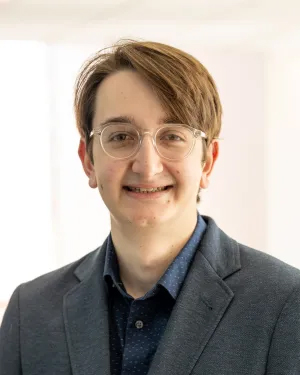 Leo Orshansky
Leo Orshansky
Dean’s Honored Graduate in Computer Science and Mathematics
Leo Orshansky is graduating with a B.S. in computer science and a B.S. in mathematics, and with Turing Scholars honors. In addition, he is receiving a minor in Chinese. He grew up in Austin, Texas, and has been passionate about solving problems in computer science and mathematics from the moment he came to UT Austin. Since 2022, he has been an undergraduate researcher in the unconventional computing theory group at UT led by David Soloveichik, where he contributed to the group’s work on DNA computing and zero-energy computing. Two of his research results were featured in the DNA29 conference, with one receiving the Best Student Presentation Award. He has been recognized as a CNS Honors Scholar in his sophomore year and received the Outstanding Chinese Language Student award in his junior year. In Fall 2023, he defended a computer science honors thesis with the title “Computation in Isolated Thermodynamic Systems.” He recently received the NSF Graduate Research Fellowship, which will fund his ongoing and future research in theoretical computer science for three years of graduate school. Outside of his academic life, he enjoys running with the Texas Running Club, playing racquetball and solving crossword puzzles. After graduation, Orshansky will pursue a Ph.D. in theoretical computer science at Columbia University.
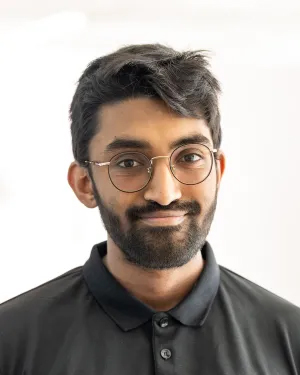 Shankar Padmanabhan
Shankar Padmanabhan
Dean’s Honored Graduate in Mathematics
Shankar Padmanabhan is a graduating Dean’s Scholar earning a B.S in mathematics with honors and the elements of computing certificate. Since Fall 2022, Padmanabhan has worked with Eunsol Choi and Greg Durrett in the Department of Computer Science on developing methods that enable language models such as ChatGPT to be lifelong learners. His work has resulted in publications presented at top machine learning conferences, including Neural Information Processing Systems (NeurIPS) 2023 and Association for Computational Linguistics (ACL) 2023. In the short term, Padmanabhan is interested in working towards a better understanding of when and how language models learn from data. In the long term, he wants to deeply understand the foundations of intelligence. Padmanabhan has also earned the CRA Undergraduate Researcher Award Honorable Mention, the Eva Stevenson Woods Presidential Scholarship and an NSF Graduate Research Fellowship. Outside of research, Padmanabhan has played for UT’s club ultimate frisbee team and enjoys learning new languages. After graduation, Padmanabhan will pursue a Ph.D. in computer science, specializing in natural language processing at Cornell University. He is grateful for his time at UT and for the support of his professors.
Read the full 2024 College of Natural Sciences Dean’s Honored Graduates story written by Esther Robards-Forbes



